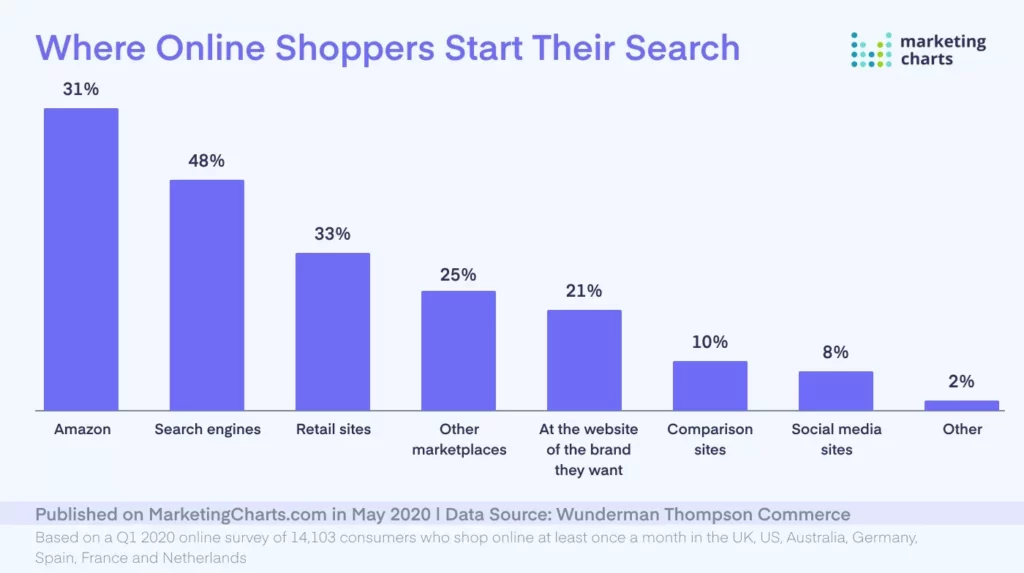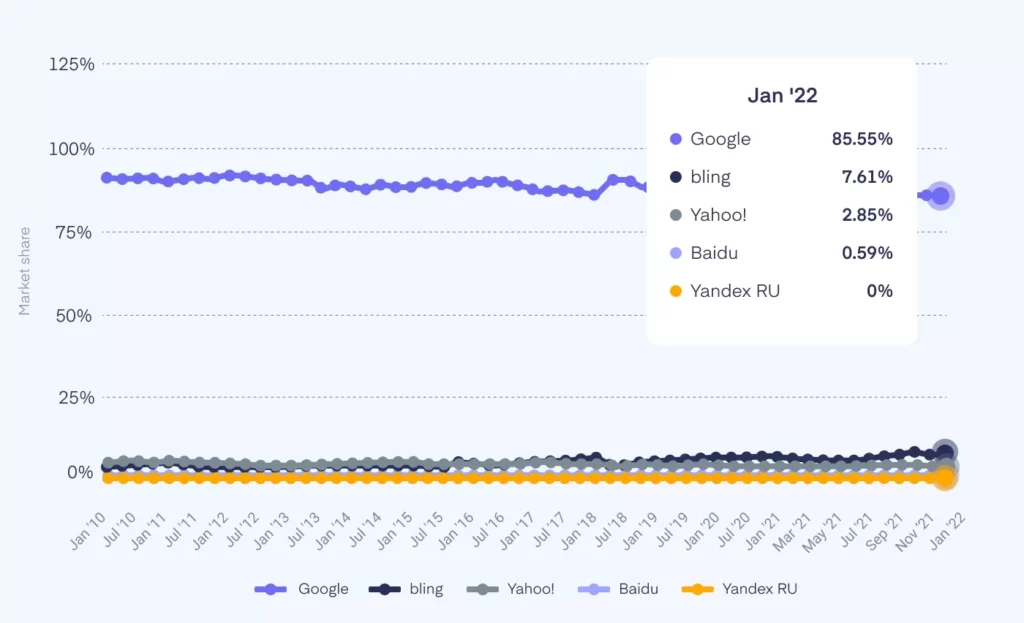Amazon is a massive marketplace, offering opportunities for sellers across the globe to reach millions of customers. However, Amazon’s success hinges on a crucial factor—visibility. And visibility on Amazon largely depends on your ability to perform effective Amazon keyword research. Without the right Amazon keywords, your products may never reach the right customers, no matter how great they are.
This article outlines 15 actionable tips for conducting Amazon keyword research to ensure your products stand out in this highly competitive marketplace. Additionally, we will show you how to use a powerful tool, Z2H by Sponsoreds, to simplify and improve your keyword research. Let’s dive into how you can optimize your Amazon strategy through comprehensive keyword research on Amazon!
Amazon Keywords and Their Importance
When we talk about Amazon keyword research, we’re referring to the process of finding and selecting words or phrases that customers type into the Amazon search bar to find products. These Amazon keywords are essential because they determine whether or not your product will appear in search results. The more relevant your keywords are to your product, the higher your chances of ranking well and reaching potential customers.
Amazon’s search algorithm, A9, uses these Amazon keywords to index and rank products. This means the keywords you choose will directly impact the visibility of your products in the marketplace. Well-researched Amazon keywords can boost your sales by ensuring that your product appears when relevant searches are made.
You can significantly enhance your product’s discoverability by incorporating strong Amazon keywords into your product titles, descriptions, and backend fields. However, selecting the right keywords is only sometimes straightforward, which is where Amazon keyword research comes into play. The goal is to understand which keywords will increase sales and conversions.
Profit Whales Case Study
At Profit Whales, we helped a well-known household brand improve its Amazon keyword research strategy, resulting in significant growth. By refining their Amazon product keyword research, the brand saw an over 200% increase in impressions. This case exemplifies how a data-driven approach to Amazon keyword research can elevate product visibility and boost overall sales performance.
How to Choose Keywords for Amazon
Choosing the right keywords is fundamental to the success of your product on Amazon. The process of keyword research for Amazon involves identifying the words and phrases that potential customers are most likely to use when searching for products like yours. But how do you determine which Amazon keywords to prioritize?
Here are three categories of keywords that can help guide your Amazon keyword research:
- Product Terms – These are the core terms directly related to the product you’re selling. When performing keyword research for Amazon products, it’s crucial to focus on product-specific terms that describe the item in detail.
- Competitor Terms – As part of your Amazon keyword research, competitor analysis is vital. By effectively identifying the keywords that your competitors are using, you can adapt your strategy to fill in gaps or target similar terms.
- Audience Terms – These keywords are derived from your target audience’s behavior. They represent the specific search terms your potential customers use, which might not always be directly related to your product but are highly relevant in attracting your target market.
By focusing on these three types of keywords, you can ensure that your Amazon keyword research is well-rounded and targets the right customers, helping you improve visibility and conversion rates.
How to do Amazon Keyword Research?
Now that we understand the importance of keywords, let’s discuss how to perform effective keyword research on Amazon. The following 15 tips will guide you through Amazon keyword research, ensuring you are equipped with the tools and strategies necessary to boost your product visibility.
Optimize Amazon Product Titles with Keywords
The title of your product listing is the most crucial element for ranking in Amazon’s search results. Make sure to include your primary Amazon keywords in your product titles. A well-optimized title boosts your search ranking and improves click-through rates by clearly communicating the product’s main features.
Incorporating relevant Amazon keywords at the beginning of the product title will maximize their impact. However, be careful to leave the title with only a few keywords, as it can make the title less readable and user-friendly.
For example, if you’re selling a laptop stand, a good product title might be: “Adjustable Laptop Stand for Desk – Ergonomic, Foldable, and Portable – Compatible with All Laptops.”
In this title, the keywords “adjustable laptop stand” and “ergonomic” are naturally integrated, helping to rank those search terms while maintaining readability.
Focus on Your Target Amazon Audience
Understanding your target audience and what they search for on Amazon is essential for effective Amazon keyword research. This means analyzing your customer base, search habits, and purchasing behavior. By focusing on Amazon keywords that reflect your audience’s needs, you can tailor your product listings to match their expectations.
When identifying keywords, consider the language your customers use. Do they use technical terms or more casual phrases? Are they more likely to search for general product categories or specific brands? Tools like customer reviews and questions can help you gather insights into your audience’s thoughts and searches.
Focusing on your audience can help you refine your Amazon keyword research and choose terms that drive traffic and conversions.
Optimize Amazon Product Pages with Keywords
Your product page is where conversions happen, so optimizing it with Amazon keywords is critical. Ensure that the keywords appear in various page elements, such as the product title, bullet points, and product description. Amazon’s algorithm indexes these areas and plays a key role in how well your product ranks in search results.
In particular, the “About this item” section should be keyword-rich, as it’s one of the first things customers see. Ensure that your Amazon keyword research includes phrases that describe the product’s key features and benefits.
For example, if you’re selling a phone case, make sure to include Amazon keywords like “durable phone case” and “shockproof iPhone case” in the description to maximize your chances of ranking.
Use Amazon’s Search Bar for Keyword Suggestions
One of the easiest ways to conduct Amazon keyword research is by using Amazon’s search bar. As you type, Amazon provides suggestions based on popular searches. These suggestions are a goldmine for Amazon product keyword research because they give you direct insight into what customers are actively searching for.
By typing in broad terms related to your product, you can find new keyword ideas that might have yet to be on your radar. For example, typing “phone charger” into the search bar might give you suggestions like “fast charging phone charger” or “iPhone fast charger.”
Use this tool to expand your keyword list and ensure that your Amazon keyword research is thorough.
Employ Only Relevant Keywords
When conducting keyword research on Amazon, relevance is key. Using irrelevant keywords might attract traffic, but it won’t lead to conversions. For instance, if someone searches for a Bluetooth speaker and lands on a product page for headphones, they’re likely to make a purchase, and this mismatch can help your product ranking.
Stick to Amazon keywords that closely align with your product’s features and target audience. Focusing on relevant keywords increases the likelihood of converting traffic into sales, which ultimately boosts your ranking in Amazon search results.
Avoid Using Subjective Keywords
Subjective terms like “best,” “top,” or “awesome” may seem appealing, but they don’t perform well in Amazon keyword research. Amazon’s algorithm doesn’t rank products based on subjective descriptions, and these terms do not provide meaningful context for buyers.
Instead, focus on descriptive Amazon keywords that highlight the features and benefits of your product. For example, use “durable,” “lightweight,” or “ergonomic” rather than subjective adjectives like “best” or “cool.”
Incorporate Keywords Within Your Listings
When integrating Amazon keywords into your product listings, ensure that they are used naturally and strategically. Repeating the same keyword multiple times is not enough—in fact, keyword stuffing can harm your ranking.
Instead, spread your Amazon keywords throughout the listing. Use the primary keyword in the title, secondary keywords in the bullet points, and additional related terms in the product description. This balanced approach ensures that your product is indexed correctly without overwhelming the customer with repetitive language.
Use Backend Keywords Effectively
Backend keywords are an often overlooked aspect of Amazon keyword research. These are hidden from customers but significantly affect how Amazon indexes and ranks your product. Backend keywords allow you to include additional search terms that you couldn’t fit naturally into your product title or description.
For example, if you’re selling a stainless steel water bottle, your backend keywords could include variations like “insulated water bottle” or “eco-friendly bottle.” This ensures that your product appears for more relevant searches without cluttering your listing.
Ensure your Amazon keyword research includes a thorough list of backend keywords to maximize your product’s visibility.
Analyze Competitors’ Keyword Performance
When looking for new keywords to target, many sellers research competitors to find new terms to build brand awareness and identify niche opportunities. You need to do the hard work of researching competitor performance. Find competitive keywords, look at their rankings, and use keyword tool research to figure out where to focus your time.
Early on, you want to know what competitors are doing with their marketing efforts on Google, Facebook, Instagram, etc. This gives you a chance to shape your marketing in a direction that will outperform them. The most crucial keyword performance tool to use is SEMrush. You need to know how well their ads perform in the organic Google search results. So, if you’re wondering how to do Amazon keyword research that will help you get ahead of your competition, try researching your competitors first.
Monitor Your Keyword Performance
After performing Amazon keyword research, it’s essential to monitor the performance of the keywords you’ve chosen continuously. Simply selecting keywords isn’t enough—you must evaluate how well those keywords drive traffic and conversions. Use tools like Helium 10 or Jungle Scout to track your keyword rankings over time and identify shifts in performance. Monitoring keyword performance allows you to identify and replace underperforming keywords with more effective alternatives. Additionally, you can observe seasonal trends and adapt your strategy to reflect customer behavior, ensuring your listings stay optimized for the most effective Amazon keywords year-round.
Consider Complementary Products
An often-overlooked strategy in Amazon keyword research is considering keywords related to complementary products. Customers frequently purchase multiple items together, so targeting keywords for products that complement yours can increase your visibility in related searches. For example, if you sell hiking boots, adding Amazon keywords related to hiking gear, backpacks, or trekking poles can help you appear in searches for those items. You can tap into additional traffic streams and boost your sales by thinking beyond your product and focusing on complementary items. This strategy also helps you position your product as part of a broader solution, making it more appealing to buyers looking to complete their shopping experience.
Google Up Relevant Keywords
Using Google to search for relevant Amazon keywords can uncover additional opportunities you may have missed on Amazon alone. Google often highlights popular search terms through its “People also ask” and “Related searches” features, which can provide valuable insights for Amazon keyword research. For example, you might find variations of keywords that your competitors aren’t using, allowing you to target untapped search terms. In addition, Google’s search volume data helps you understand which keywords are trending or growing in popularity, allowing you to stay ahead of the competition. Incorporating these Amazon keywords into your research will help you build a comprehensive list that maximizes your product’s discoverability across multiple platforms.
Use Google Analytics
Google Analytics is another powerful tool to enhance your Amazon keyword research by offering deeper insights into web traffic and user behavior. By analyzing data such as which keywords are driving traffic to your site, where users are coming from, and how they interact with your pages, you can refine your Amazon keyword research strategy to target your audience better. You can track conversions and sales that originate from specific keywords, helping you determine which keywords are the most profitable. Over time, this data helps you fine-tune your keyword selection and improve the efficiency of your marketing efforts on Amazon. Google Analytics also allows you to spot trends and predict future search patterns, ensuring that your keyword strategy evolves along with your audience’s preferences.
Use Google Trends
Google Trends is an invaluable tool for staying up-to-date on the latest search trends, making it a powerful resource for Amazon keyword research. By examining the popularity of specific search terms over time, you can gain insight into which keywords are growing in relevance and which ones may be losing traction. This lets you focus on trending keywords that align with customer search behavior, ensuring your listings remain visible and relevant. For instance, if you notice a spike in searches for eco-friendly products, you can adjust your Amazon keywords to reflect this demand. Google Trends also provides data on seasonal fluctuations, enabling you to adapt your keyword strategy to reflect high-demand periods, such as holidays or special events.
Search Through Other Platforms
In addition to using Amazon and Google, it’s essential to expand your Amazon keyword research by searching through other platforms like Etsy, eBay, or Walmart. These platforms can provide a wealth of insight into what customers are searching for in similar product categories. For example, if you notice specific keywords performing well on Etsy for handmade products, you can incorporate those Amazon keywords into your own listings to capture a broader audience. Each platform has its unique user base, and by analyzing keyword performance across multiple sites, you can uncover new keyword opportunities you might have yet to consider. This cross-platform approach ensures that your product is optimized for maximum exposure, reaching potential customers wherever they shop.
Exclusive Bonus: Optimize Amazon Keyword Research with Z2H by Sponsoreds
For sellers looking to take their Amazon keyword research to the next level, Z2H by Sponsoreds offers an innovative solution. Z2H is an Amazon keyword research tool that simplifies the process of finding and optimizing keywords for your listings. Its AI-driven algorithm analyzes vast amounts of data to provide you with a set of highly targeted keywords tailored to your product.
Using Z2H allows you to optimize your Amazon keyword research in a fraction of the time it would take manually. The tool also helps you structure your ad campaigns, ensuring that you get the best possible results from your advertising efforts.
If you’re interested in using Z2H by Sponsoreds for your Amazon keyword research and advertising needs, now is the perfect time to sign up. As a special offer for readers of ProfitWhales, you can use a coupon code to get a 75% discount on the price of Z2H. That’s a significant saving and a great opportunity to try out this powerful tool for yourself.
Sign-up to Sponsoreds
To take advantage of this offer, register for Z2H using the link provided by Sponsoreds and enter the special coupon code at checkout. Once you’ve completed the registration process, you’ll be able to start using Z2H right away to research keywords and launch effective advertising campaigns on Amazon.
Don’t miss out on this incredible offer. With Z2H and the unique coupon code from ProfitWhales, you can access a powerful tool for Amazon keyword research and advertising at a fraction of the usual price. Register today and start driving sales on Amazon like never before!
Final Word
The importance of Amazon keyword research cannot be overstated. With the right keywords, your products will be more visible, attract more customers, and ultimately lead to higher sales. By following the strategies outlined in this guide, you’ll be well on your way to refining your Amazon keyword research process and staying ahead in the competitive Amazon marketplace.
Tools like Z2H by Sponsoreds can make the process more efficient and impactful for sellers looking to enhance their keyword strategy even further. Whether you’re just starting out or have years of experience, mastering keyword research on Amazon is essential to achieving long-term success. Using the right tools and techniques, you can optimize your listings, improve your product visibility, and boost sales.
If you’re looking for expert help to elevate your Amazon sales even further, the team at Profit Whales specializes in optimizing Amazon campaigns and strategies. For personalized guidance or any questions regarding your Amazon keyword research, feel free to reach out through our Contact Us page. We’re here to help you achieve the best possible results on Amazon.
FAQ
How Long Does it Take to Choose Keywords For Amazon?
The time it takes to choose the right Amazon keywords varies depending on your experience and knowledge of your product niche. If you’re a beginner, it may take longer to familiarize yourself with the process and tools. However, using an Amazon keyword research tool like Z2H can help streamline the process and significantly reduce the time it takes.
What is The Search Algorithm of Amazon?
Amazon’s A9 algorithm is designed to rank products based on their relevance to specific Amazon keywords. It evaluates factors such as the keyword’s relevance to the product, the product’s sales performance, and customer feedback. By optimizing your listings with targeted Amazon keywords, you increase your chances of ranking higher in search results.
How Are Amazon Keywords Related to Product Relevance?
Amazon keywords are crucial in determining how relevant your product is to customer searches. The more closely a keyword aligns with your product’s features, the higher your product will rank in Amazon search results. Ensuring that your keywords accurately represent your product can drive more targeted traffic and increase conversions.
How can competitor analysis improve my Amazon keyword strategy?
Analyzing competitors’ keyword strategies allows you to identify potential gaps or opportunities that can enhance your own Amazon keyword research. By studying what keywords work for competitors, you can refine your approach to target underserved keywords or improve existing strategies. This helps you stay competitive and attract more relevant traffic to your listings.
How can I ensure that the keywords I choose are relevant to my target audience?
To ensure your Amazon keywords are relevant to your audience, analyze customer behavior and search patterns. Use reviews, questions, and tools to gain insights into your customers’ language and terms. By aligning your Amazon keyword research with customer needs, you’ll ensure your listings resonate with the right audience and improve visibility.








